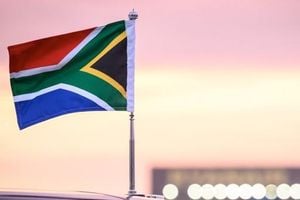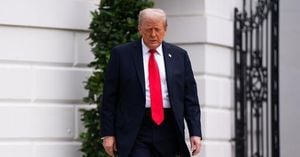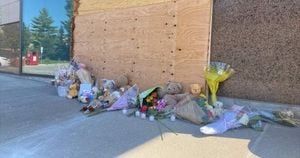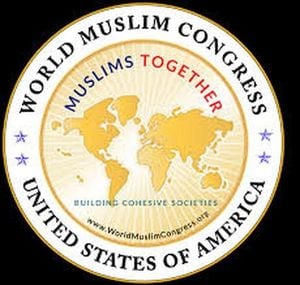In a move that has sent ripples throughout Latin America and beyond, the United States is deploying over 4,000 marines and sailors to the Caribbean and surrounding waters, aiming to confront drug cartels and what officials describe as narco-terrorist organizations operating in the region. This deployment, involving the Iwo Jima Amphibious Ready Group (ARG) and the 22nd Marine Expeditionary Unit, is part of a broader repositioning of military assets under the jurisdiction of US Southern Command (Southcom), which covers Central and South America as well as the Caribbean Sea.
The operation, first reported by CNN and subsequently confirmed by Bloomberg, marks a substantial increase in US military presence in the Western Hemisphere—a region where, historically, the US has not devoted significant military resources. The Navy had previously announced the departure of the Iwo Jima ARG and the 22nd Marine Expeditionary Unit from Norfolk, Virginia, describing it as a "regularly scheduled deployment." However, sources told Bloomberg that the units, which include three amphibious vessels and function jointly as a crisis response force, are now being redirected to the Southcom area of operations. This shift has been ongoing for the past three weeks, with officials emphasizing the flexibility of the force to move among combatant commands as needed.
The deployment comes against the backdrop of President Donald Trump’s intensified efforts to crack down on Latin American drug cartels. According to Reuters, Trump has made targeting drug gangs a central goal of his administration, linking the fight against narcotics trafficking to broader efforts to limit migration and secure the southern US border. Earlier this year, the Trump administration designated Mexico’s Sinaloa Cartel, Venezuela’s Tren de Aragua, and other groups as global terrorist organizations, a move intended to broaden the scope of US counter-narcotics operations and justify increased military involvement.
US Secretary of State Marco Rubio, in a video posted on the Department of State’s social media profiles, underscored the seriousness of the mission. "There are designated narco-terrorist groups operating in the region. Some of them utilize international transits and international waters to transit poison into the US. Those groups will be confronted. The President made that clear from the time he was inaugurated," Rubio stated, as reported by Newsday.
Rubio did not mince words regarding Venezuela’s government under President Nicolás Maduro. "The Maduro regime is not a government. It is not a legitimate government and we have never recognized it as such. They are a criminal enterprise that has taken control of national territory and who, by the way, are threatening US oil companies that are operating lawfully in Guyana," Rubio declared. He added, "The President has been very firm on this. Anything that is a threat to the United States of America, he is going to confront."
On August 7, 2025, Rubio announced a dramatic escalation in US efforts to apprehend Maduro, unveiling a reward of $50 million for information leading to the Venezuelan leader’s arrest and conviction for violating US narcotics laws. "For over a decade, Maduro has been a leader of Cartel de los Soles, which is responsible for trafficking drugs into the United States," Rubio said, referencing the US Treasury’s designation of the cartel as a terrorist group on July 25, 2025. The bounty on Maduro’s head has steadily increased—from $15 million in 2020, to $25 million in January 2025, and now doubled to $50 million.
Rubio further accused Maduro of undermining democracy in Venezuela. "Since 2020, Maduro has strangled democracy and grasped at power in Venezuela," he said. "Maduro claimed to have won Venezuela’s July 28, 2024, presidential election but failed to present any evidence that he had prevailed. The United States has refused to recognize Maduro as the winner of 2024 election and does not recognize him as the President of Venezuela."
Venezuelan officials have pushed back forcefully against the US’s actions and rhetoric. Foreign Minister Yvan Gill denounced the latest moves as "a crude political propaganda operation," according to Newsday. The Maduro government continues to insist on its legitimacy, while the US maintains its stance that the regime is a criminal enterprise rather than a lawful government.
Meanwhile, the Pentagon’s deployment of forces is not limited to naval assets. Reuters reported that the US military has increased airborne surveillance of Mexican drug cartels, seeking to gather intelligence to better counter their activities. However, Mexico has firmly rejected any deployment of US troops on its territory, emphasizing its sovereignty and the limits of US intervention.
The broader repositioning of military assets in the region, according to a US official cited by Bloomberg, means that US Southern Command will have additional resources to assist with counter-narcotics operations in the coming months. The official, who requested anonymity to discuss details not yet public, suggested that the movement of the forces to the region doesn’t necessarily mean they will remain there indefinitely—they could be moved elsewhere as originally planned, potentially to participate in exercises or other missions.
The deployment of the Iwo Jima ARG and the 22nd Marine Expeditionary Unit is significant in both scale and symbolism. As a crisis response force, these units are equipped to handle a range of missions, from combat operations to humanitarian assistance. Their presence in the Caribbean sends a clear message of US resolve to confront what it views as emerging threats in its own hemisphere.
For many observers, the operation raises questions about the future of US engagement in Latin America. Is this a one-off show of force, or the beginning of a sustained military campaign against drug cartels and regimes deemed hostile by Washington? The answer may depend on how events unfold in the coming months—and how regional governments respond to the increased US presence.
As of now, the US has not disclosed the specific operational plans for the newly deployed forces, nor has it detailed the duration of their stay in the region. What is clear, however, is that the Trump administration is prepared to leverage military power as part of its broader strategy to combat narco-terrorism and safeguard US interests in the hemisphere.
In the words of Secretary Rubio, "Anything that is a threat to the United States of America, he is going to confront." With thousands of marines and sailors now en route to the Caribbean, the world will be watching closely to see how this high-stakes gamble plays out.



